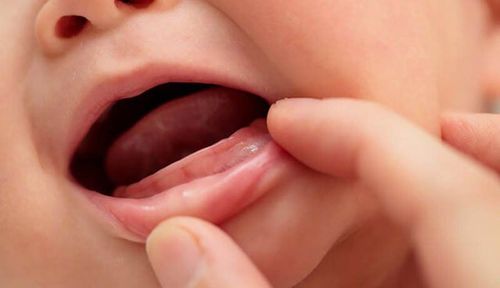Children often get sick during weaning time from 6 months to 3 years old, a common condition that many parents encounter but have not found the cause. Is it because the child's immune system is weakened? When is a child's immune system fully developed?
Video content is professionally consulted by Specialist Doctor 1 Dang Thi Ngoan, Pediatrician - Neonatologist, Vinmec Ha Long International General Hospital
1. The immune system of young children
The immune system of newborns and young children is the child's natural defense system against pathogens such as bacteria, viruses, parasites, and other harmful environmental factors. A healthy immune system will help children develop optimally in the first years of life and have a long-term impact on their health.
Unlike the nervous system, the immune system is more complex and is located throughout the body, including the tonsils, digestive system, bone marrow, skin, lymph nodes, spleen, and thin mucous membranes inside the nose, throat, and genitals.
Being distributed in many locations
helps the immune system form and store cells and maintain continuous activity to keep the entire body healthy.
At birth, the baby's immune system is very good thanks to the antibodies received from maternal blood and through breast milk. However, "passive immunity" does not create long-term resistance because the antibodies begin to decrease sharply in the next 6 months. Therefore, babies need to be exclusively breastfed until 6 months of age because this is a source of passive antibodies to maintain immunity.
From 6 months of age onwards, the IgG antibodies passed from the mother to the child have decreased significantly. At this time, the child's immune system has not yet been fully developed, and it is not until the age of 3-4 that this system will produce enough antibodies to help fight infectious diseases. The transition period between the passive and active immune systems from 6 months to 3 years of age is the time when children become sensitive to infectious diseases such as diarrhea, respiratory infections, or allergies.

2. How to boost the immune system in children?
In children, the first five years of life (especially the two years after birth) are crucial for boosting the immune system. A healthy immune system helps reduce the likelihood of infections and allows children to recover more quickly when they do fall ill. Here are some effective ways parents can strengthen their children's immunity:
2.1. Breastfeeding
During infancy, when the immune system is still developing, babies rely on their mother's immune antibodies. This is why the World Health Organization recommends exclusive breastfeeding for the first six months of life, followed by continued breastfeeding along with an appropriate weaning diet until the child is two years old.
2.2. Strengthening digestive health
Approximately 70% of the body's immune system is located in the digestive tract. To maintain a healthy digestive system, parents should avoid weaning their babies too early and ensure that the weaning diet is suitable for their age. Introducing naturally fermented yogurt and a variety of vegetables and fruits into their diet can help balance beneficial bacteria and harmful bacteria in the digestive system.
2.3. Limiting antibiotic use
Overusing antibiotics can disrupt the balance of intestinal bacteria, negatively affecting the digestive system and, consequently, the child's health. Therefore, parents should only administer antibiotics when absolutely necessary and as prescribed by a doctor. If antibiotics for children are required, it is beneficial to provide yogurt along with digestive enzymes, essential micronutrients, vitamins, and amino acids to help children recover quickly and restore a balanced intestinal microflora.
2.4. Timely and complete vaccination
Vaccination is vital for generating specific active immunity. Vaccines stimulate the body to develop specific immunity against various infectious diseases. The vaccination schedule is especially important during the first two years of life. Parents should ensure their children receive all vaccinations on time to build a strong immune system.
Hopefully, with the above information, parents will have more useful information to protect their baby's intestinal bacteria and also protect the immune system to help the baby avoid many infections to be healthier.
To arrange an appointment, please call HOTLINE or make your reservation directly HERE. You may also download the MyVinmec app to schedule appointments faster and manage your reservations more conveniently.















